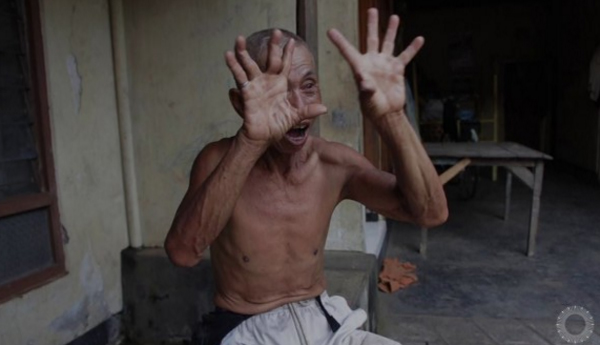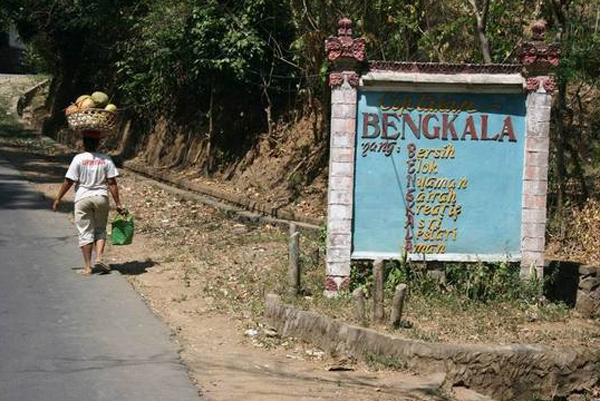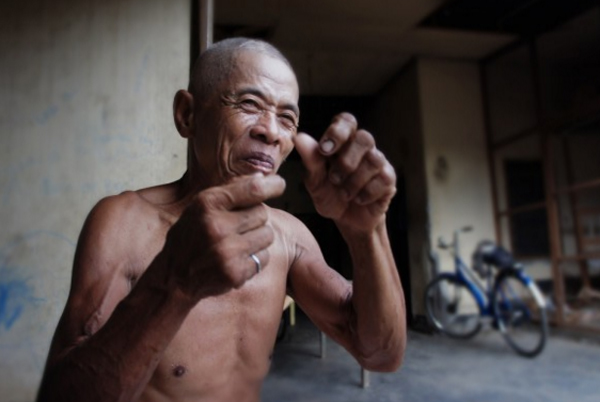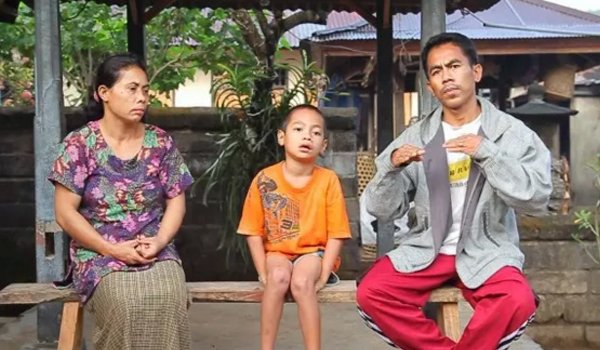That so many people would bother to learn sign language might seem strange, but there’s a good reason behind the unique tradition – the number of hearing and speech impaired in Bengkala is about 15 times higher than the world average and it’s believed to have been even higher in the past.
So it’s only natural that, in time, body language took precedence over words, and villagers developed their own unique sign language which has been passed on for centuries.

The high incidence of deafness is apparently caused by the geographically-centric recessive gene DFNB3, present in the village for over seven generations. Parents with normal hearing may have a deaf child, and deaf parents are known to have children who can hear perfectly well. Either way, it seems to make no difference to the villagers, who have long learned to treat everyone the same, without any kind of discrimination.
Some in the Balinese village don’t even perceive deafness as an abnormality, but as a gift from Dewa Kolok, the god of the deaf. He is believed to reside in a local graveyard, watching over and protecting his people. However, according to another local legend, the deafness is a curse. “The famous story is that two people with magic powers fought each other and then cursed each other to be deaf,” said Ida Mardana, mayor of Bengkala village. “The meaning of Bengkala is ‘a place for someone to hide.’”

Today, 42 kolok (deaf and mute villagers) form a community in the village, headed by Nyoman Santiya. Instead of being discriminated against or pitied, they are regarded as physically stronger, resilient, more loyal and honest. Their qualities are so renowned within Bali that people from neighboring communities often come to them for shelter and protection in tough times. They are also recruited as ‘hansip’ (civilian guards) and ‘pecalang’ (traditional Balinese security guards).
According to I Made Cincin, a village official, the kolok guards are more disciplined and efficient than other guards. “If we ask them to come to work at 7 a.m., they usually come earlier,” he said. “And they also have a good memory of the history of our village.” He added that the koloks can get quite aggressive if they witness something unfair. “If someone cheats during a cock fight, the kolok will not hesitate to hit him. If the kolok catch a thief, they beat him up badly, because they don’t hear his screams.”

But he explained that those are worst-case scenarios. Koloks are usually patient and good-natured people. “Even if someone pesters them, they don’t react. Sometimes we tap them on the shoulder to attract their attention, they don’t seem to mind.” Although they’re small in number, the rest of the villagers don’t find it difficult to communicate with the koloks at all, as they’re all skilled in kata kolok and manage to hold conversations without any difficulty. The people of Bengkala all make sure to teach their children kata kolok as a second or third language, so the tradition never dies.






